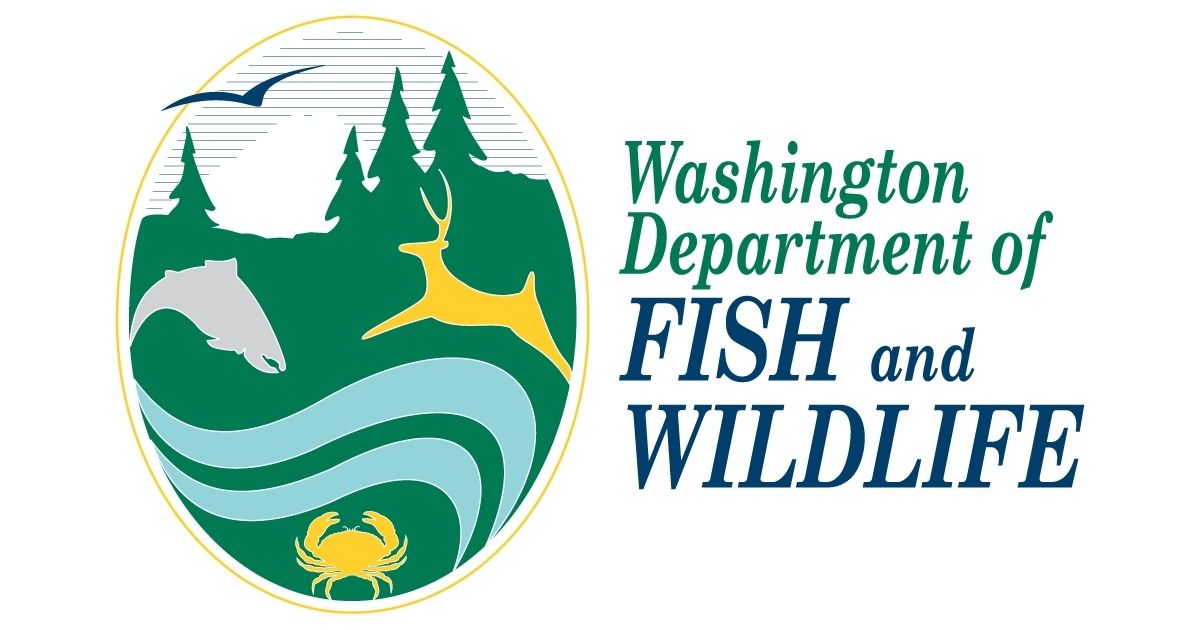The Coastal Marine Fish Scientific Technician position collects data on recreational and commercial marine fish fisheries, participates in at-sea research studies, and processes marine fish age structures for reading that are managed by the WDFW and the Pacific Fishery Management Council (PFMC) through its Groundfish Fishery Management Plan and Coastal Pelagic Species (CPS) Fishery Management Plan.
The data collected, entered, and reported by this position provide essential scientific information used by the WDFW, the PFMC, and the National Oceanic and Atmospheric Administration (NOAA) to assess and manage marine fish species that support economically and socially valuable commercial and recreational ocean fisheries off Washington, Oregon, and California.
This is an opportunity to collect data that will be used by state and federal scientist in stock assessments that inform the management of healthy coastal marine fish populations.
With your experience, you will serve as an expert collecting biological data from coastal groundfish landings and participating in at-sea research surveys of Washington’s coastal waters.
The optimal applicant is familiar with the approximately 100 species of groundfish and 10 coastal pelagic species found on the Washington coast and the fisheries that encounter these species.
We are seeking a candidate who will support the WDFW mission of protecting, restoring, and enhancing fish and wildlife and their habitats, while providing sustainable fish and wildlife-related recreational and commercial opportunities through habitat protection and enhancement activities.
DUTIES
Conducts dockside sampling of marine fish landings at Washington’s coastal ports, primarily at La Push and Neah Bay, and secondarily at Ilwaco, Chinook, and Westport. Collects biological, catch, and effort information on commercial and recreational groundfish fisheries, commercial CPS (anchovy, sardine, mackerel, squid) fisheries, and research project landings (e.g., International Pacific Halibut Commission). Tasks include:
- Collect biological information (weight, length, sex, maturity, genetic tissue samples, ageing structures) on various marine fish species caught by research, commercial, and recreational fisheries.
- Evaluate catch and species composition of fishery landings.
- Collect logbooks from commercial fishermen.
- Track fishery activity and prioritize all sampling efforts to meet established sampling goals.
- Communicate with charter skippers, commercial dealers and other WDFW Units (i.e. the Ocean Sampling Program) regarding daily schedules and logistics. Keep biologists and managers apprised of activities in port.
- Respond to public inquiries or concerns per unit protocols.
- Advise WDFW Enforcement personnel of potential illegal activities.
- Enter data and conduct data Quality Assurance/Quality Control (QA/QC) following unit protocols.
Processes samples in a laboratory. Tasks include:
- Process fins (dry, cut, mount), otoliths, and other fish structures or tissues for age reading or other scientific evaluation.
- Dissect fish specimens for biological data collection, tag retrieval, and/or preservation.
- Process sediment or other samples from research surveys or studies.
Participates in at-sea research surveys of the marine fish species that inhabit Washington’s coastal waters from the Washington/Oregon border to the Sekiu River - Strait of Juan de Fuca. Deploys on multiple single day trips or extended trips of up to 6 days on agency research vessels, chartered research vessels, or commercial fishery vessels. Completes preseason preparation and postseason wrap up assignments. Tasks include:
- Assist with daily project operations, including but not limited to: collect fishing effort and catch composition data, collect biological data (e.g., weight, length, age structures, genetic tissue samples), accurately identify species, tag fish with a Passive Integrated Transponder and/or external Floy tags, record data electronically in real time, angle for fish.
- Assist with survey gear preparation.
Maintains assigned equipment. Tasks include:
- Maintain and clean sampling equipment per unit protocols and schedules.
- Assist with unit vehicle and vessel maintenance and cleaning following unit protocols and schedules.
- Assist with vehicle mileage reports and/or vessel operations logs.
REQUIRED QUALIFICATIONS
Please Note: College course work involving major study in biology, zoology, fisheries, chemistry, natural sciences, or closely allied field will substitute, year for year, for experience, provided the course work includes at least six semester or nine quarter hours of natural or environmental science classes.
Graduation from high school or GED, including one year of high school science, AND two (2) years of experience as a Scientific Technician 1.
OR
Graduation from high school or GED, including one year of high school science AND two (2) years of laboratory or field experience as an assistant to a biologist, chemist, or zoologist.
License:
- Valid driver’s license.
PREFERRED QUALIFICATIONS
General Knowledge:
- Familiarity with commercial fishery landing and processing operations, and sport fishery operations.
- Knowledge of commercial and sport fishing marine gears, methods, and regulations.
- Working knowledge of marine fish sampling techniques and random sample design.
Fieldwork:
- Strong marine fish species identification skills; can correctly identify the approximately 100 species of groundfish and 10 coastal pelagic species found on the Washington coast.
- Skilled at procedures for collecting and processing biological ageing structures (otoliths, fins) from a variety of marine fish species.
- Ability to collect data systematically with a high degree of accuracy, precision, and completeness.
Operating Equipment:
- Familiar with the operation of electronic sampling and tagging equipment including CWT and PIT tag equipment, environmental sensing equipment and GPS tracking equipment.
- Experience trailering and operating outboard vessels; can safely and expertly operate agency research vessels.
- Familiar with laboratory equipment including microscopes, precision saws and fume hoods; capable of operating lab equipment safely following State and Federal guidelines.
Computing:
- Basic skills using Excel, iForm, Access, and email software.
- Skilled in collecting real time data accurately and with minimal errors on electronic devices while in the field, including at sea.
- Can proficiently review and compile data collected by themselves for quality control.
Communication Abilities:
- Strong skills in diplomacy and relationship building between coworkers, stakeholders and the general public.
- Capable of communicating and being easily accessible via phone and e-mail.
- Can clearly communicate verbally and in writing with individuals and groups within and outside of the agency.
SALARY: $2,864.00 - $3,701.00 Monthly
APPLICATION DEADLINE: March 31, 2022
LOCATION: Forks, Washington
JOB TYPE: Seasonal





